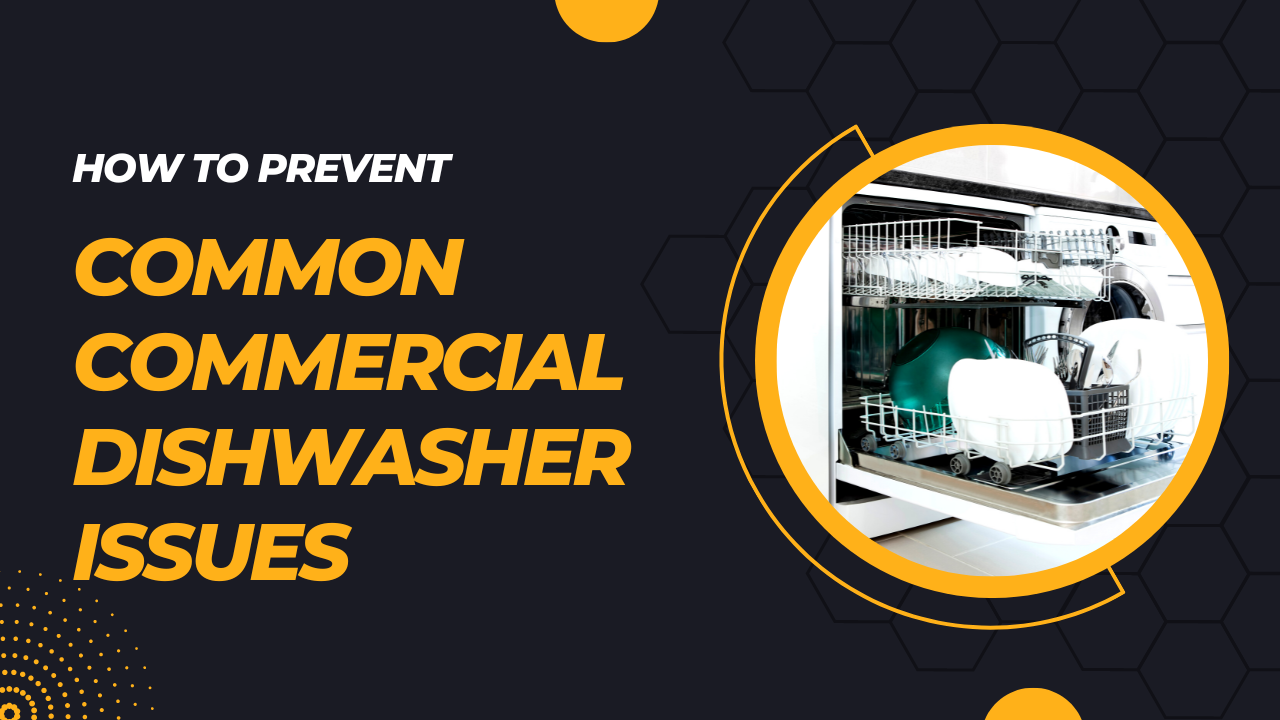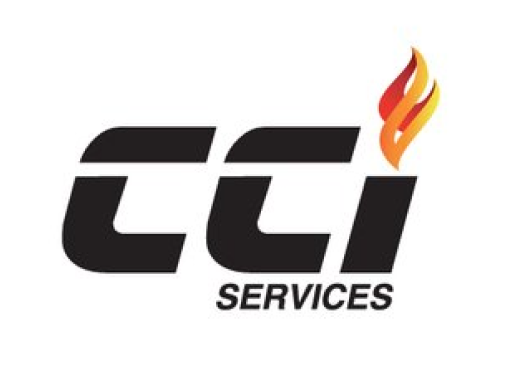
Commercial dishwashers are essential to any restaurant or food service operation, but they can also be a source of frustration and costly repairs. While these machines are built to withstand heavy use, they can still break down or malfunction, causing downtime and lost revenue.
To avoid common commercial dishwasher issues, following best practices for maintenance and operation is important. Here are some tips for preventing common problems before they occur.
Prevent Common Commercial Dishwasher Issues
Regular Cleaning and Maintenance
One of the easiest ways to prevent common commercial dishwasher issues is to perform regular cleaning and maintenance. This includes cleaning the filters and spray arms, checking the water supply and drain lines for clogs, and inspecting the machine for any wear or damage.
Following the manufacturer’s recommended cleaning and maintenance schedule is also important. This may include regular descaling to remove mineral buildup and lubricating moving parts to prevent wear and tear.
Proper Loading and Unloading
Proper loading and unloading can also help prevent common commercial dishwasher issues. Overloading the dishwasher can lead to poor cleaning performance, as dishes may not be thoroughly cleaned or rinsed. This can also put excess strain on the machine, causing it to break down more quickly.
Likewise, improperly unloading the dishwasher can cause dishes to break or chip, damaging the machine’s spray arms and filters. Training staff on proper loading and unloading techniques is important to ensure that the dishwasher is used correctly and safely.
Temperature Control
Temperature control is another important factor in preventing common commercial dishwasher issues. Dishwashers operate at high temperatures to ensure that dishes are thoroughly cleaned and sanitized. However, if the water is too hot or cold, it can cause problems with the machine.
If the water is too hot, it can cause the dishwasher’s seals and gaskets to break down more quickly, leading to leaks and other issues. If the water is too cold, it can lead to poor cleaning performance and cause the dishwasher’s heating elements to work harder, leading to premature failure.
Monitoring the dishwasher’s water temperature regularly and making necessary adjustments to ensure it operates within the manufacturer’s recommended temperature range is important.
Water Quality
Water quality is another important factor in preventing common commercial dishwasher issues. Hard water can cause mineral buildup on the machine’s spray arms, filters, and heating elements, leading to poor cleaning performance and premature failure.
To prevent these issues, it’s important to use a water softener or other water treatment system to reduce the hardness of the water. This can help extend the life of the dishwasher and improve its cleaning performance.
Detergent and Chemicals
Using the wrong detergent or chemicals can also cause common commercial dishwasher issues. Some detergents and chemicals can damage the machine’s seals and gaskets, leading to leaks and other issues.
It’s important to use the manufacturer’s recommended detergents and chemicals and to follow the recommended dosage guidelines. Too much detergent can lead to excess foam, damaging the machine’s spray arms and filters.
Regular Inspections
Regular inspections can also help prevent common commercial dishwasher issues. This includes checking the machine for signs of wear or damage, such as cracks in the spray arms or worn-out gaskets.
It’s also important to inspect the machine’s electrical components, such as the heating elements and thermostats, to ensure they work correctly. Any issues found during the inspection should be addressed immediately to prevent further damage or breakdown.
Staff Training
Proper staff training is essential for preventing common commercial dishwasher issues. All staff members who use the dishwasher should be trained on proper loading and unloading techniques and the proper use of detergents and chemicals.
Staff members should also be trained on the dishwasher’s proper maintenance and cleaning procedures. This includes understanding the recommended cleaning schedule, checking for clogs in the water supply and drain lines, and inspecting the machine for signs of wear or damage.
Additionally, staff members should be trained to identify and report any issues with the dishwasher to management. This can help address problems quickly before they lead to costly repairs or downtime.
Conclusion
By following best practices for maintenance and operation, it is possible to prevent common commercial dishwasher issues before they occur. Regular cleaning and maintenance, proper loading and unloading, temperature control, water quality, detergent and chemical usage, regular inspections, and staff training can all help extend the machine’s life and improve its performance.
Investing in preventative measures can save time and money in the long run by avoiding costly repairs and downtime. By prioritising commercial dishwasher maintenance, restaurant and food service, owners can ensure that their operations run smoothly and efficiently and that their customers are served with clean and sanitized dishes.
Read Related: Preventing Air Conditioning Breakdowns: Tips and Tricks

 0800 644 2727
0800 644 2727